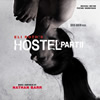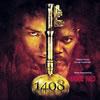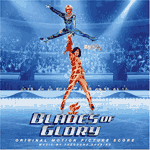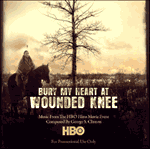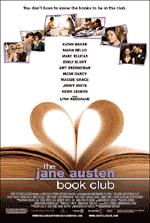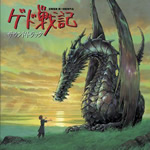SOUNDTRACK GENRES |
| SHEET MUSIC |
| LPS AND CASSETTES |
| BARGAIN BIN |
| RARE AND ONE OF A KIND |
| AUTOGRAPHED CDs |
| NON-SOUNDTRACK CDS |
| RELATED LINKS |
| CONTACT US |
Past Columns
8/1/07
8/14/07
8/26/07
9/24/07
10/8/07
10/22/07
Randall D. Larson's SOUNDTRAX
|
Soundtrax
September 10th, 2007Horrifying Hotels & Dazzling Blades of Glory
By Randall D. Larson
This Week’s Recommendations
Nathan Barr’s score for director Eli Roth’s latest terror-torture offering, Hostel Part II, has been released by Varese Sarabande. Unlike the onslaught of terror tonalities and textures that embodied Barr’s first Hostel score and are in large part carried over into the sequel, in Part II we also have a sympathetic theme for the ambiguous character of Axelle, the mysterious beauty who lures victims to the film’s sinister accommodation. Axelle’s melody plays only sporadically in the film, but Barr and Roth liked the theme so much that Barr developed it into a lengthy End Credit suite which ultimately did not play in the film. That 6:33 suite, “Amid A Crowd of Stars,” opens the Varese soundtrack, and it’s a lovely orchestral opening, rich in European sonorities as it creates a beautifully adventurous and old-school classical overture while accentuating the fusion of mystery and melancholy that embody her character in the film. “The front part of the melody is original to Axelle,” Barr writes in the CD’s liner notes, “but the back part always reverts to the four-note Hostel motif, ever tying Axelle to the organization.” Another track composed for but not used in the film is “Montage,” a compelling composition featuring the splendid voice of Lisbeth Scott, hauntingly conveyed over prepared piano, furtive glissandi of harp, and droning synth, a mesmerizingly persuasive lost track that is thankfully preserved on the CD. The majority of the score’s sound – and the music that was ultimately kept in the film – is of course the darker sound design and textural material. Track 2, “Beautiful Skin,” begins the descent into darker music with a foreboding violin and flute melody that opens into an urgent string-based riff, upon which is intruded a deeply reverberating drum beat and an undulating rush of horns that carries us into the next track, “Train,” a rustling ambiance of percussive textures over an incessantly ringing tonality. The same string-based urgency from “Beautiful Skin” quickly captures us and becomes an ostinato for panic and escape throughout the score, reaching its climax in the provocative track, “Turning Tables.” “Portrait” captures a cool palette of eerie ambient motifs and layered textures of reverberated sound that becomes quite chilling. It’s a thoroughly potent and claustrophobic score, compelling and ultimately quite disturbing in its sound design.
Also check out Gabriel Yared’s terrific horror score about another haunted hostel, 1408, also released by Varese Sarabande. The 1408 score is crafted from spellbinding sound designs, ambient strata of tonality shifting and balancing upon one another, bristling sonic textures integrating to form a provocative assemblage of frightening atmospheres; but it’s a potent score and a fascinating excursion into sound design. As Yared’s first foray into horror scoring, the music is a far cry from what we’ve heard from him in the past. His take on horror scoring isn’t uniquely fresh, but the composer examines, reflects, and engages horror scoring with a palette that is uniformly interesting and entirely effective.
After issuing the obligatory song-soundtrack a few weeks ago, Lakeshore Records has thankfully released Theodore Shapiro’s splendid score for Blades of Glory, Dreamworks’ latest dumbed-down Will Ferrell comedy, on a score only CD (the three score cues that were on the previous song CD, “Slice and Dice,” “Snow Cones,” and “Blades of Glory,” are included here also). Shapiro’s music plays straight man to the antics of Ferrell and John Heder’s wanna-be ice dancers, with the kind of crowd-pleasing heroic music one might expect for an Olympic event (many of them representing source-music from the ice skating events the characters compete in), while gentler themes like “Snow Cones” and “We Did It” reflect humbler friendship and character interaction. “The Family Plot” generates an especially cool mysterioso vibe, very Mancini/Pink Panther-esque; “Disowned” is an especially poignant track, while “Cruel Bitch Mother” is a clever jaunt through David Newman territory, and a nicely organized mix of orchestra and guitars that builds into an effectively malicious chase. It’s not all symphonic adventure, though: “Pile of Guts” is the inevitable rock-based montage track, rife with electric guitar and rhythm section, while “Grublets on Ice” is the film’s Grumpalump song, a tune accompanying a children’s puppets-on-ice show; “The Human Onion” is a brief hard rocking blues number, guitars, drums, and organ; and “The Chase” is rather perfunctory self-important prime-time hybrid energy, a raging rhythm of symphs and synths and electric guitars, but it nicely resolves with an air of pleasing victory and becomes the score’s musical climax. “Blades of Glory” is a splendid track that closes out the CD nicely. Shapiro’s orchestrations are dazzling and if there’s perhaps a little too much self-importance in the music, it appropriate to the film and the music’s emotive and near-epic eloquence remain likeable nonetheless.
George S. Clinton at Wounded Knee
Grammy Award nominated composer George S. Clinton received an Emmy nomination for his score to the HBO original film, Bury My Heart at Wounded Knee, which comes out on DVD this week. Clinton's score features master Lakota flutist and recording artist John Two-Hawks. The composer's nomination is in the category of Outstanding Music Composition for a Miniseries, Movie or a Special (Original Dramatic Score). The 59th Primetime Emmy Awards will be held Sept. 16. Last Month, Clinton received the prestigious Richard Kirk Award for outstanding career achievement at the BMI Film & Television Awards.
The film, starring Aidan Quinn and Anna Paquin, is directed by Yves Simoneau. Based on Dee Brown's best-selling novel of the same name, the film examines the overwhelming impact that the United States' westward expansion had on American Indian culture, focusing on the preceding events to the tragic Sioux massacre of 1890.
Clinton researched Native American music to create the score. By combining the sounds of Two-Hawks' Lakota flute, an 80-piece orchestra, and a 32-voice male choir, Clinton creates a score that accurately reflects the due respect for Native American culture conveyed through the film. "I had the choir sing Lakota text at times to further integrate the Native American and the traditional orchestral elements of the score," says Clinton. In order to portray the forced assimilation of Native Americans during the time period, Clinton intertwined the flute and the piano to thematically represent both the Native American and so-called "civilized" dispositions of main character Charles Eastman. Clinton wrote the complete 120-minute score within a mere four weeks.
Clinton's musical innovation and versatility has allowed him to create memorable scores for a variety of different genres including his most recent work, The Cleaner. His other credits range from such diverse films as the hit comedy Austin Powers: International Man of Mystery and its blockbuster sequels to the hit martial arts fantasy Mortal Kombat and its sequel. Other noteworthy projects include Zalman King's Red Shoe Diaries, John Waters's A Dirty Shame; Tim Allen's Joe Somebody; Kevin Costner's 3000 Miles to Graceland; The Astronaut's Wife, starring Charlize Theron and Johnny Depp; and the sexy thriller Wild Things.Web site: www.georgesclinton.com
Aaron Zigman: Busiest Composer in Hollywood
Award-winning composer Aaron Zigman is known as one of Hollywood's most diversified young film composers. Now Zigman is Hollywood's busiest composer. In five years, Zigman has scored more than twenty-five movies including John Q, Take the Lead, and The Notebook. In 2007, ten movies he composed will be released, including two pairs of movies with simultaneous release dates.
For the next year Zigman will have at least one movie premiering each month including Good Luck Chuck, and Jane Austen Book Club on September 21st, then Martian Child in October, followed by Why Did I Get Married, and Mr. Magorium's Wonder Emporium on November 16th, and Christmas Cottage in December.
Aaron began his musical career as a producer and arranger to popular music stars. His resume boasts names such as Aretha Franklin, Natalie Cole, Phil Collins, Tina Turner, Patti Labelle, Carly Simon, Christina Aguilera, and Seal. A classically trained pianist as a child, Aaron has a foundation for writing melody with an ear for a good tune.
Orchestration is Zigman's passion. He is an accomplished composer of concert works, writing numerous symphonic pieces including a 35 minute-long tone poem divided into 5 movements which was written in tribute for Yitzhak Rabin, and performed by the Los Angeles Jewish Symphony. Recently, the USC Symphony orchestra performed Zigman's Impressions, a suite for a wind ensemble. To further expand his career, Aaron arranged and orchestrated for feature films such as Mulan, The Birdcage, and Licensed to Kill.
Zigman's big break into feature film composing came in 2002, when director Nick Cassavetes offered him a shot at scoring John Q starring Denzel Washington. Zigman paid for a 55-piece orchestra and wrote an extravagant six-minute opening montage that he submitted as a demo to land the job. The relationship has led to further film collaborations including the romantic classic The Notebook, and the edgy drama Alpha Dog. – via Costa Communications
Web site: www.aaronzigman.com
Film Music News
Studio Ghibli’s latest anime feature Tales of Earthsea (Gedo Senki), adapting several novels in Ursula K. LeGuin’s laudable Earthsea novel series, into a single film. It’s still a far cry from other recent anime’s from the studio like Princess Mononoke and Spirited Away. Reportedly master animator Hayao Miyazaki had a scheduling conflict with his other film and was unable to direct this one, so he brought in his son Goro, formerly a studio construction consultant and not a director, so it was an unusual choice. He does a passable job, but the film is marred by slow pacing and animation which while very much in the vein of his dad’s, is noticeably less lively and active. The English cast did a good job (a noble Timothy Dalton, a mumbling Willem Dafoe, and a cackling Cheech Marin) and the film has a solid orchestral score enhanced by bagpipes, uillian pipes and all manner of ethnic winds. The score, composed by Tamiya Terajima, has been released as a SACD/CD hybrid release by Pony Canyon in Japan. The score CD includes the theme songs "Therru's song" and "Toki no Uta," sung by young newcomer Aoi Teshima. A 7-track song soundtrack featuring various mixes of Teshima’s songs, was also released by Japan’s Miya Records, and a piano album with Terajima performing his Gedo Senki themes is also available. Google “tales of earthsea cd” to find an online source.
The latest release from Film Score Monthly is a budget-priced limited edition (1500 copies) boxed set of three-discs featuring five scores from United Artists Westerns of the '50s and '60s. The Unforgiven: Classic Western Scores From United Artists features the original stereo album tracks from Dimitri Tiomkin's score for The Unforgiven; the complete Gerald Fried score for Cast A Long Shadow in mono; the stereo LP tracks from David Buttolph's The Horse Soldiers; the complete David Raksin score to Invitation To A Gunfighter in mono; and the complete stereo score to Guns Of The Magnificent Seven, with orchestrators Leo Shuken and Jack Hayes adapting Elmer Bernstein's music from the previous two Magnificent Seven scores, with Bernstein conducting.
300 composer Tyler Bates has been hired to score The Descent director Neil Marshall’s new film, Doomsday, a futuristic action thriller where a team of people work to prevent a disaster threatening the future of the human race.
Intrada’s latest Special Collection presents for the first time David Newman’s versatile score for Bill & Ted's Bogus Journey, the sequel to Bill & Ted’s Excellent Adventure, which Newman also composed. This second tale of the adventuring teen airheads has them visiting to heaven, hell, and points between. Newman’s score illuminates the exciting journey with a big-scale score for full orchestra and large chorus, including a couple of lavish set-pieces with music respectively warm and reverent for the duo’s journey to heaven, and alternatively grim and powerful when they journey to the other place. Newman’s complete score is presented from the original digital session masters, allowing for a very dynamic audio experience. Intrada’s Special Collection release is limited to 1500 copies!
Forthcoming from Varese Sarabande on Sep. 25th is Luis Bacalov’s lushly beautiful and tropical score for Sea of Dreams, a poignant fantasy from writer-director José Bojorquez. The movie creates a fascinating world that celebrates the miracles of falling in and out of love, of death, and of freedom, telling of a beautiful woman, led to believe she has powerful ties to the sea, defies everyone to prove them wrong, in a world where man and nature connect in improbable ways, where myths are real and truth is imaginary.
Decca has released the score for The Bourne Ultimatum, final film in the celebrated action trilogy starring Mark Damon as fugitive spy Jason Bourne. The Decca soundtrack features the original score by John Powell, who also scored the previous Bourne Identity and Bourne Supremacy, as well as a new version of the end-title song, "Extreme Ways," performed by Moby.
FSM reports that John Scott is composing a new score for the 1922 Douglas Fairbanks version of Robin Hood, which will premiere at the Royal Concert Hall in Nottingham, England on October 7, with the composer conducting the Nottingham Philharmonic Orchestra.
On October 9th, Warner Bros will release the soundtrack from Steve Jablonsky’s larger than life score for the Transformers movie. Jablonsky’s eloquent Dragon Wars score, for the effects-laden movie that opens this Friday, is out on Milan Records.
Mark Isham has launched a new website at www.isham.com featuring news, images, info, music samples, and much more – including some really cool Monty Pythonesque graphics on the opening screen.
Crown Records in Japan has released the original soundtrack to the upcoming Takashi Miike (One Missed Call) film Sukiyaki Western Django! The score by Kôji Endô, Miikke’s usual composer, looks to be a mix of songs and pop tunes. The film is kind of a mixture of Yojimbo and Kung Fu Hustle, as rival gangs face off in a dusty town while a deadly gunman comes to aid the townsfolk. In addition to its Japanese cast, the film features Christian Storms and Quentin Tarantino in small roles.
In further Japanese soundtrack news, Victor Records has released a huge, limited edition CD boxed set containing all of Yoko Kanno’s music from the popular anime series Ghost In The Shell Stand Alone Complex. The set features all five previously released albums, plus one additional CD of unreleased music titled and a bonus flash memory stick (256M) with a voice collection from Tachikoma, the Major, and Batou, wallpapers, O.S.T. music clips, commercials and more.
Japan’s Verita Note label’s latest Ennio Morricone reissue is the “complete soundtrack” to Veruschka, one of the composer’s loveliest scores from 1971, featuring the voice of Edda dell’Orso. The 16-track CD has more material than the previously issues CD version, the 13-track CD released on Point Records in Italy in 1995, but less than the 70-minute 21-track CD issued by Italy’s Easy Tempo in 2003, which included a number of alternate takes which are not on the Japanese release.
I had the pleasure of writing the CD liner notes for BSX’s new release of Laurie Johnson’s score for Captain Kronos Vampire Hunter – first in BSX’s assumption of the Hammer soundtrack line initiated by England’s GDI Records. The score is truly a splendid one, very much echoing Johnson’s association with and influence of Bernard Herrmann. For Brian Clemens’ medieval/Western/vampire story, Johnson (noted for his work on The Avengers TV series and for his scores for The First Men In The Moon and Dr. Strangelove). Johnson’s score for Kronos revolves around a truly swashbuckling, energetic main theme, rippling with trumpets and violins, contrasted against a more viciously ambient tonality representing the vampires that the swordfighter confronts. When I interviewed Johnson in 1995 for my book, Music from the House of Hammer, he didn’t have a lot to say about his score for Captain Kronos, describing his approach to scoring the film thusly: “The dramatic emphasis is the only guiding line. The process from then on is purely instinct and subconscious. As far as Captain Kronos was concerned, we worked together in our usual manner, as a team. I cannot remember any contribution or involvement from any one at Hammer.” The Region 1 and 2 DVDs, released in 2003, include commentary from Clemens and leading lady Caroline Munro.
The WMPG FM radio show DVD Classics Corner On the Air will present a three-week 100th Birthday Tribute for Miklos Rozsa, featuring guest Juliet Rozsa (daughter of the composer) as well as selections from his film scores, including rare works. The broadcasts will air on October 3, 10 and 17 at 1:00 p.m. Eastern Standard Time, and can be accessed live at www.wmpg.org
Lakeshore Records has released Rolfe Kent’s score for The Hunting Party, Richard Shepard’s war journalist drama, set in Eastern Europe and starring Richard Gere, Terrence Howard, and Jesse Eisenberg. Kent’s score is reminiscent of old-fashioned adventure music, replete with emotional lines and accessible harmonies, while subtle rhythms and textures evoke ethnic locale. The CD includes six rock songs in addition to Kent’s score, which is well performed by the Bulgarian Symphony Orchestra.
Game Music News
Video Games Live™, the premier concert celebrating the most memorable music from the biggest video games, is brought to London by Microsoft® Xbox 360, IMG Artists, and Raymond Gubbay in association with the Southbank Centre, as the opening event of the London Games Festival. The biggest scores from the most iconic games will be performed by members of the Philharmonia Orchestra at the Royal Festival Hall on 22nd October 2007, at 7.30pm. Tickets can be bought from the Royal Festival Hall box office on 0871 663 2500, or by clicking here.
Video Games Live™ is not just a concert, but a musical, visual and interactive celebration of gaming that will enthrall anyone who has ever played a video game. Whether it's the power and passion of forthcoming Xbox 360 blockbuster Halo® 3, or nostalgia for the days of Pong and Space Invaders, Video Games Live™ is sure to be a hit with gamers and non-gamers alike.
Hosted and Conducted by co-creators Tommy Tallarico and Jack Wall, the prestigious Philharmonia Orchestra and a Choir will perform live alongside exclusive video footage and music arrangements, synchronized lighting, solo performers, electronic percussion, live action and unique interactive segments to create an explosive one-of-a-kind entertainment experience. This event will also feature a special arrangement from the iconic Halo 3, composed by Marty O’Donnell, to be performed live by the Philharmonia Orchestra for the first time.
The London Games Festival, running from 22nd - 26th October, is a celebration of gaming and interactive entertainment featuring diverse events for different audiences across the capital. Visit www.londongamesfestival.co.uk for more details.
Action from previous Video Games Live™ concerts can be viewed at:
Hollywood Bowl: http://videogameslive.com/video/vglpromo2.wmv
San Jose: http://www.videogameslive.com/trailer/vglsanjose2006.wmv
Brazil: http://www.videogameslive.com/video/vglbrazil.wmvRandall Larson was for many years senior editor for Soundtrack Magazine, publisher of CinemaScore: The Film Music Journal, and a film music columnist for Cinefantastique magazine. A specialist on horror film music, he is the author of Musique Fantastique: A Survey of Film Music from the Fantastic Cinema and Music From the House of Hammer. He now reviews soundtracks Music from the Movies, Cemetery Dance magazine, and writes for Film Music Magazine and others.

